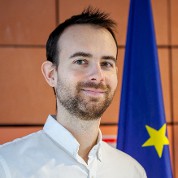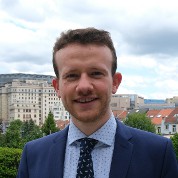The key role of cities in the Conference on the Future of Europe

Petzold Wolfgang

Gosset Martin

Kaye Thomas
The Conference on the Future of Europe provides the opportunity for citizens to interact with politicians across various levels of government and express their aspirations.
As the assembly of locally elected politicians, the European Committee of the Regions (CoR) considers this an opportunity to establish new models of dialogue and deliberation with citizens that can strengthen democracies. Regions and cities, as the levels of government most trusted by citizens, have a key role to play in this process, and the CoR will represent their interests in the conference.
Through its 18-member delegation to the conference, the CoR will seek to strengthen the role of local and regional authorities in European democracy and the functioning of the European Union. In particular, CoR representatives will promote the role of European representative democracy at local and regional levels in order to increase the democratic legitimacy of the EU as well as citizens' sense of identity and ownership of the European project.
They will also promote multilevel governance in the EU and the principle of active subsidiarity for the better involvement of regional and local authorities in drawing up and implementing EU legislation and policy processes. CoR representatives will also make concrete proposals to address the territorial dimension of EU policies in the achievement of the EU's overall cohesion objective.
In order to give voice and visibility to regional and local concerns, the CoR has partnered with the Bertelsm ann Foundation to create a project designed to make cities and regions' voices heard throughout the Conference on the Future of Europe.
Innovative participatory processes and online tools will be used to involve regional and local politicians and authorities in holding local or transnational citizens? panels. In total, about 50 panels with the potential to involve 3 500 citizens from 37 regions and 13 cities from 16 EU Member St at es will be organised by the end of 2021.
These will provide input to high-level debates as well as recommendations for the final report of the conference, expected in spring 2022. The key message arising from the process will be that European democracy matters to Europe's regions and cities and vice versa and that new models of deliberation with citizens can strengthen democracy across various levels of government.
Although the time frame of the Conference on the Future of Europe may seem relatively short, its symbolic and potential future value deserves to be highlighted: it is the first time such a widespread participatory exercise has taken place, specially designed to allow not only interested citizens but also randomly select ed cross-sections of society to reflect and deliberate on the issues closest to them.
The innovative and inclusive processes established through this conference lay the groundwork for future endeavours of this nature, thus streamlining more direct forms of participation for citizens, regions and cities in EU policymaking.
the CoR will seek to strengthen the role of local and regional authorities in European democracy and the functioning of the European Union
Already in 2020, the CoR anticipated this change, holding physical and then virtual forums at which citizens could hold discussions and challenge their locally and regionally elected officials. Before the end of 2021, over 100 CoR local dialogues between citizens and politicians will have taken place on issues ranging from youth access to the labour market, and freight and passenger railway infrastructure, to digital transformations and how regions can benefit from and apply for Green Deal funding.
From October to December 2021, specific attention will be given to urban and rural policies through events allowing mayors and councillors to meet heads of government and Commissioners and feed their experiences and policies into the Conference on the Future of Europe. Their place-based understanding and proximity to issues directly affecting citizens' everyday lives are resources that can increase both the credibility and the efficacy of decision-making at EU level. The formal recognition of local and regional governments' importance also increases legitimacy: they are the most trusted level of government and the most accessible for citizens to interact with.
A key sphere to which the regional viewpoint particularly contributes is cross-border cooperation: significant advances have been made to streamline life for citizens in border areas through administrative, legal and infrastructural improvements. The COVID-19 pandemic, however, brought about the biggest setback for cross-border cooperation in decades, with overnight border closures resulting in major social and economic damage for citizens and businesses.
it is the first time such a widespread participatory exercise has taken place, specially designed to allow cross-sections of society to reflect and deliberate on the issues closest to them
Given that internal border regions cover 40% of the EU's territory, accounting for 30% of its population (150 million people), with almost 2 million daily cross-border commuters, the CoR will continue advancing their cause vis-à-vis other EU institutions and giving them dedicated space within the conference.
The Conference on the Future of Europe is an opportunity to reflect on European democracy and strengthen its functioning. The CoR endeavours to do this and thus improve the way the EU works, reconnecting it with the citizens that it serves. Cities and regions participating in the conference bring it democratic accountability and allow important participatory pathways to be established between citizens and the EU.
Wolfgang Petzold, Deputy Director for Communication, CoR Martin Gosset, Administrator, CoR
Thomas Kaye, Events Manager, CoR